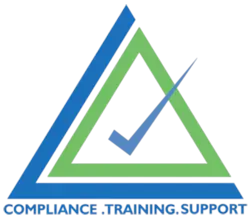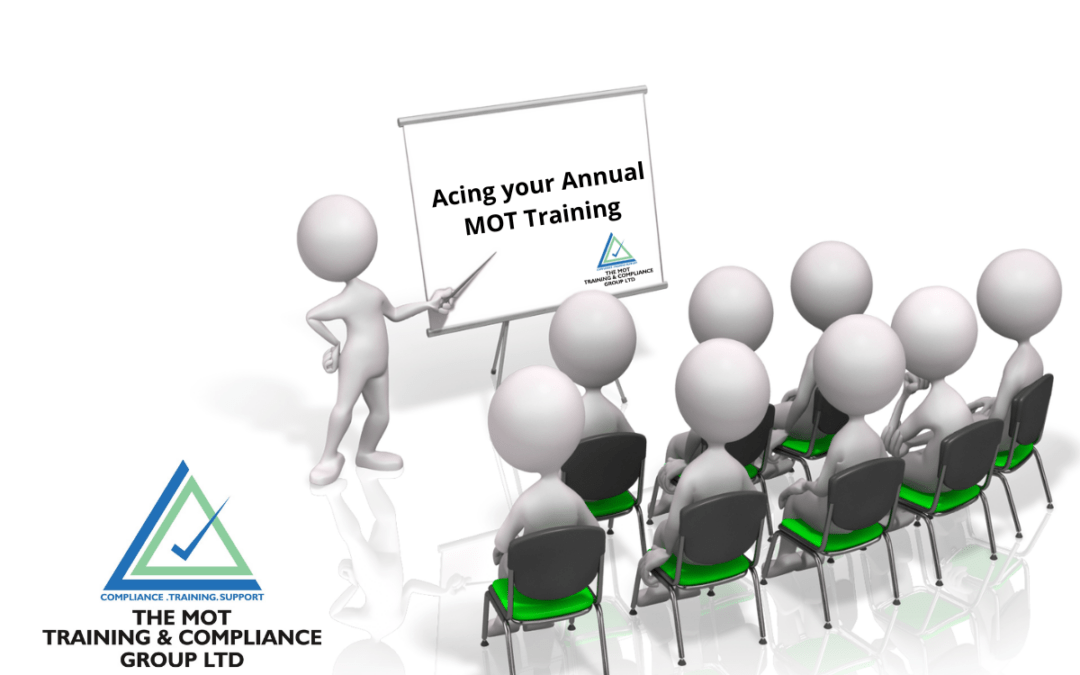Annual MOT Tester training – whilst it’s our favourite topic, we appreciate that it’s the part of being an MOT tester that doesn’t exactly spark joy for most, but it’s a must!
So here’s our guide to help make it less of a chore and ensure that you ace it with ease!
What’s the deal with Annual Training?
Each year, as an MOT tester, you’ve got to clock in at least 3 hours of training between 1st April and 31st March, followed by an assessment.
Sounds simple, right?
Well, leaving it until the last minute can result in some less-than-flattering remarks from the DVSA during their visit (and no one wants that!). We’ve even seen some centres get marked as “Needing Improvement” for pushing their training right to the deadline. So, get ahead of the game!
Site Managers – give your team a nudge! The earlier your testers complete their training, the better your site will look in the eyes of the DVSA and help you to avoid your site being marked down!
What Does the DVSA Say About MOT Training
Training
You’re responsible for planning and doing your training.
You must record your training on the MOT testing service.
You and the business you work for can be suspended from MOT testing if you do not record your training on the MOT testing service.
You can train on your own or in a group by:
· studying MOT inspection manuals, special notices and the testing guide
· discussing what you’re learning with another tester (or group of testers)
· demonstrating what you’re learning to another tester
· learning from a more experienced tester
You can sign up for online or in-person training.
Now we might be a bit biased, but we think face-to-face training at centre like ours is the best way to learn, as it gives you the opportunity to ask questions and clarify anything you’re not sure about in real time with real people! There’s also less chance of being interrupted as it takes you out of the normal working environment so you can focus on the job at hand!
If face-to-face* isn’t possible you can purchase an access code for training and assessment either direct from providers such as these
– Skills and Education Group
– City & Guilds
– Institute of the Motor Industry
OR from a training company, like ours. (*Psst – did I mention that we offer excellent face-to-face training?!) . You can find details of all our courses here
What You Need to Study
What you focus on depends on the type of vehicles you test. Let’s break it down:
If you test Group A (Class 1 & 2, vehicles like motorbikes) you need to know about:
💡Corrosion
💡Classification of vehicles
💡MOT test procedures
💡The MOT inspection manual for motorcycles.
If you test Group B (Class 3, 4, 5 & 7 vehicles like cars and vans) you need to cover:
💡Corrosion
💡Classification of vehicles
💡MOT test procedures
💡The inspection manual for cars and passenger vehicles.
Unsurprisingly, if you test both groups A & B you have to study all the topics and you’ve got double the fun with 6 hours of training a year (instead of 3) and two annual assessments. Even more reason to get ahead of the game and not leave it to the last minute!
Keep Your Training Records Spotless
Here’s a tip: keep a solid record of your training – it all needs to be logged on the MOT Testing Service under your own MOT profile.
You need to keep your own records of any training you did between 1 April 2019 and 31 March 2024, which must include:
· The MOT annual training year (for example April 2019 to March 2020)
· The date of the training
· How long the training session lasted
· What topics you covered during the session
· Notes on what you did, how you did it and what you learned
· What vehicle groups your training covered
· Your name
- Your MOT testing service user ID
Site managers – there’s no need for paper logs anymore (unless you’re old school or a stationery geek who loves the feel of paper!), but you must check your testers’ logs are completed and that they can see them on their MOT site.
REMEMBER: The DVSA can see all training logs now, so make sure those logs are tip-top containing all relevant information and demonstrating what was learnt from the training
Pro Tip: Get It Done Early!
We can’t stress this enough – the earlier you complete your training, the smoother things will go. No one likes a scramble at the last minute, and the DVSA will certainly appreciate your proactive approach. Plus, it’s one less thing to worry about!
So, take a deep breath, plan out that training, and make sure your MOT testing career stays in top gear!
Want to book on one of our courses?
Get in touch by calling 0800 1777 344 or email us: support@themotgroup.co.uk

